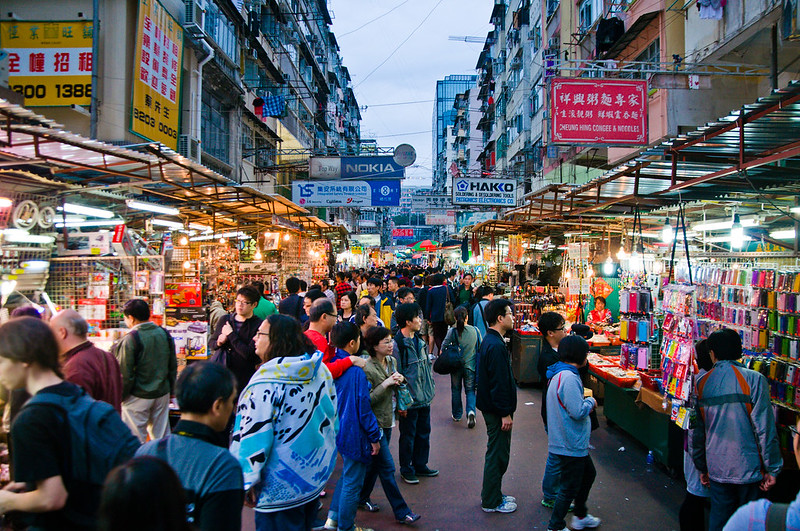Poverty and Mental Health in Hong Kong
 Despite being one of the freest and most developed economies in the world, Hong Kong is a city characterized by high levels of inequality, with a significant portion of the population living in poverty. Not coincidentally, the city also faces prevalent mental health challenges, which are both a cause of poverty and a consequence. It was estimated that every one in seven people in Hong Kong experience a common mental disorder at any given time and 74% of mental health sufferers do not seek any professional help.
Despite being one of the freest and most developed economies in the world, Hong Kong is a city characterized by high levels of inequality, with a significant portion of the population living in poverty. Not coincidentally, the city also faces prevalent mental health challenges, which are both a cause of poverty and a consequence. It was estimated that every one in seven people in Hong Kong experience a common mental disorder at any given time and 74% of mental health sufferers do not seek any professional help.
Even more concerning is the state of mental health of youth in the city: A 2023 survey estimates that about one in five participants experienced at least one mental health issue in the past 12 months, a rate significantly higher than the global average. In addition, more than half of the sufferers experience more than one mental disorder.
The Risk of a Vicious Cycle
Poverty and mental health in Hong Kong are deeply interconnected. Studies focusing on the city found that in comparison to their higher-income peers, working adults and children in low-income groups face poorer mental health and lower self-esteem. Research also suggests that poverty contributes to poor mental well-being by causing material deprivation. At the same time, income poverty does not directly correlate with mental health.
Besides the direct relationship between poverty, deprivation and mental disorders, lower-income individuals are also more vulnerable to other risk factors for mental disorders, such as the pressure to overwork. A 2016 survey found that workers in Hong Kong work an average of 50.1 hours per week, 35% higher than the global average among 71 other cities. As a result, 25% of Hong Kong workers suffer symptoms of depression and anxiety, 2.5 times above the global average. Another contributor to mental health problems is housing conditions and limited living space, an issue almost only faced by low-income individuals.
While low-income populations are more vulnerable to mental health problems, the symptoms of mental illnesses and the social stigma attached to them make it harder for sufferers to lift themselves out of poverty. Such a two-way relationship between poverty and mental health can lead to a self-perpetuating vicious cycle for low-income individuals, leading to chronic, intergenerational poverty.
Government Initiatives
In December 2023, in response to the city’s mental health crisis, the government launched a 24-hour mental health support hotline that coordinates the resources of about 20 related organizations. Earlier in the year, the Hospital Authority (HA) also promised to enhance support for patients with severe mental disorders by increasing the ratio between case manager and patient, exploring new treatments and reducing patient waiting time.
Grassroot Organizations
Nongovernmental organizations (NGOs) also play a crucial role in addressing Hong Kong’s mental health crisis. Mind HK, for example, provides free talking therapies and check-in services for individuals with mild to moderate mental health problems. The organization also engages in campaigns and events to raise awareness of mental well-being, as well as training sessions that educate people on mental health literacy. In 2022 alone, more than 6000 participants joined the nonprofit’s training sessions.
KELLY support group, on the other hand, focuses on the mental health of youth and adolescents. The organization organizes programs that promote peer support around emotional well-being and provides referral services to match youth with partnering organizations for counseling services and other support.
Final Remark
While the interconnections of poverty and mental health in Hong Kong are associated with the risk of a vicious cycle for sufferers of mental disorders, from a positive perspective, addressing the mental health crisis in the city also contributes to poverty elimination in the long term. Hong Kong’s ongoing initiatives protect not only the mental wellness of its residents but also social equity and economic development.
– Wangruoxi Liang
Wangruoxi Liang is based in Ann Arbor, MI, USA and focuses on Global Health for The Borgen Project.
Photo: Flickr
